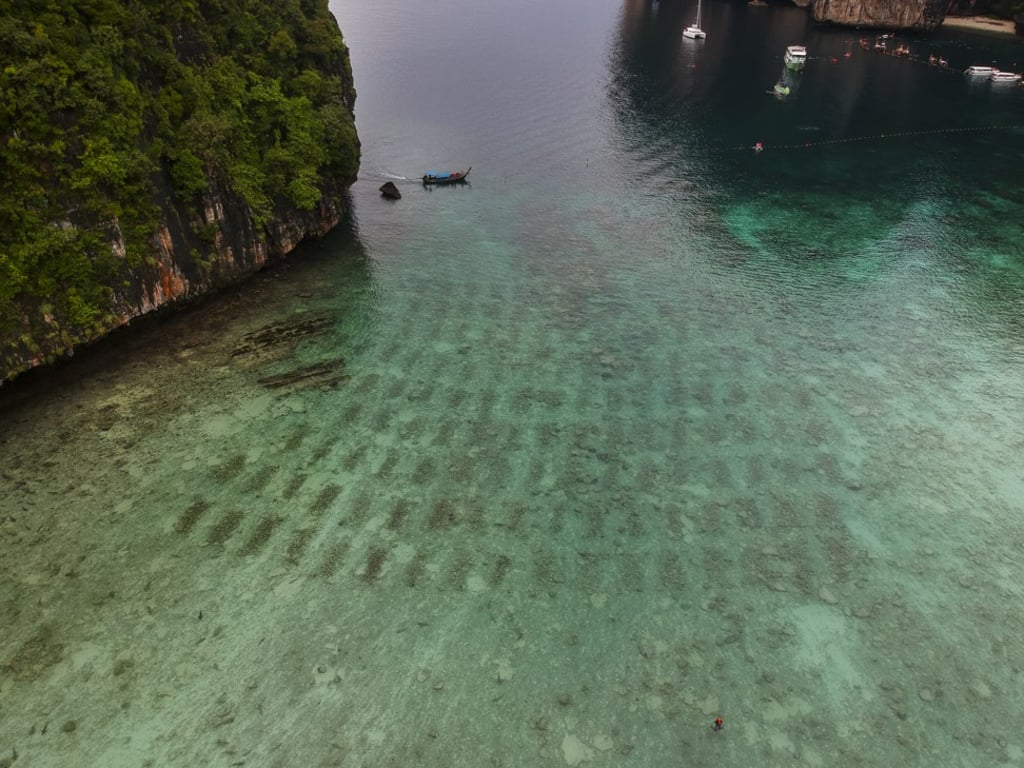Miracle of Maya Bay: how Thai paradise island wrecked by tourism has staged an incredible recovery in marine life
- Leonardo Di Caprio film The Beach had travellers flocking to the paradise isle since 2000, but wrecked by overtourism it was closed on June 1 last year
- It has since witnessed a near miraculous recovery in marine life and may offer a model for the rest of Asia’s fragile ecosystems

The drone video footage taken about 30m above Maya Bay in southern Thailand captures a solitary diver finning in the shallow waters while the dark shadows of reef sharks can be seen swimming around him.
“I saw at least 100 sharks yesterday,” says Malaysian coral conservationist Anuar Abdullah, the diver in the video, and the founder and CEO of social enterprise Ocean Quest Global.
He points out the rectangular outlines of some of the 120 nurseries his team of coral gardeners has built inside the bay, which are shaped like large bars of Toblerone. Each one measures 5m by 2m (16ft by 2ft), and black-tipped reef sharks, up to 1.5 metres in length, are patrolling the avenues between the blocks of coral, like taxis cruising for customers.
Maya Bay, on one of the Phi Phi islands in the Andaman Sea, is probably the most famous beach in Southeast Asia. Hollywood superstar Leonardo Di Caprio was filmed here for the 2000 movie The Beach. That, combined with its stunning natural beauty, was enough to attract more than 300 power boats, packed full of up to 5,000 tourists, every day for some 18 years.

This small bay surrounded by towering limestone cliffs, and its narrow strip of white powder sand beach, became a prime example of the ecological damage inflicted by overtourism. The tourist boat anchors destroyed the coral reefs, the noise of the engines frightened the birds, the marine fuel poisoned the fish, and the sediment churned up by the propellers choked the coral. Tourists trampled the vegetation, left litter on the beach and urinated in the sea.
The ecological damage was so catastrophic that in June last year, the Thai authorities took the unprecedented step of closing Maya Bay to tourists. “We inherited a 100 per cent dead ecosystem,” says Abdullah.
